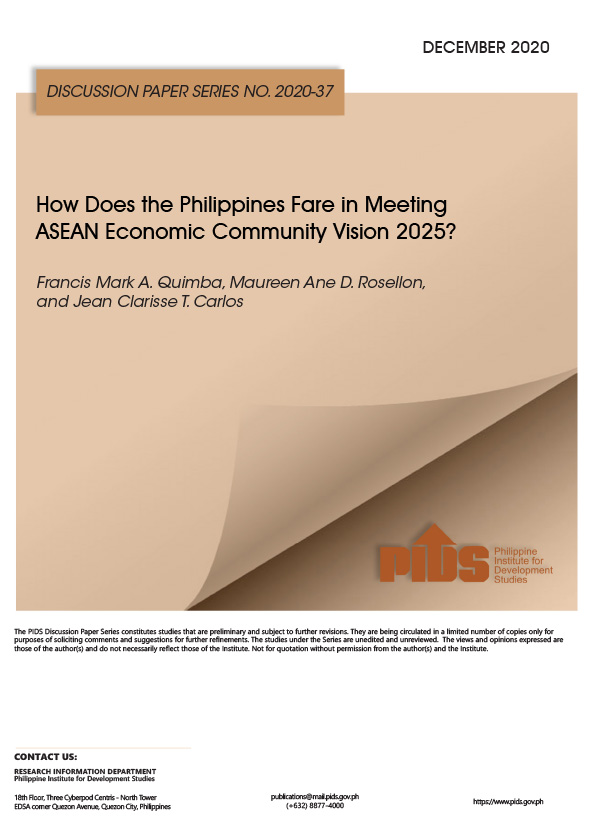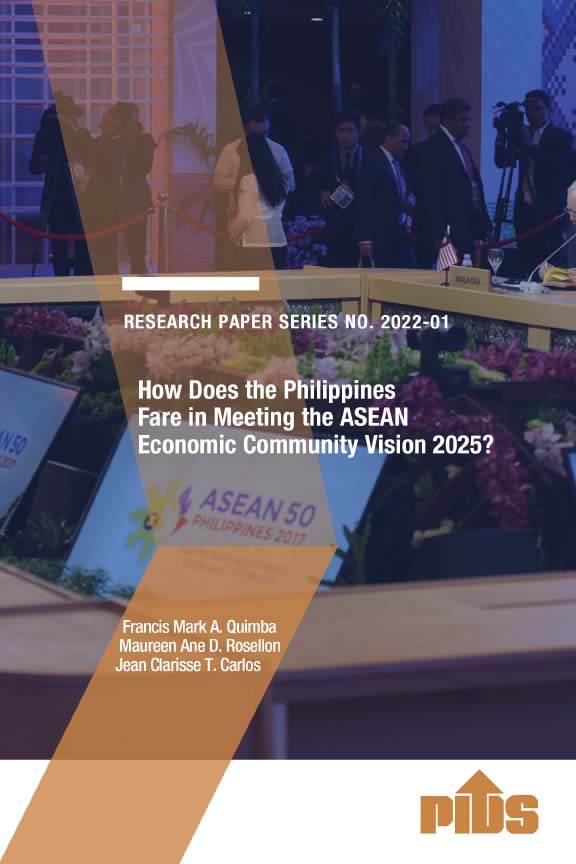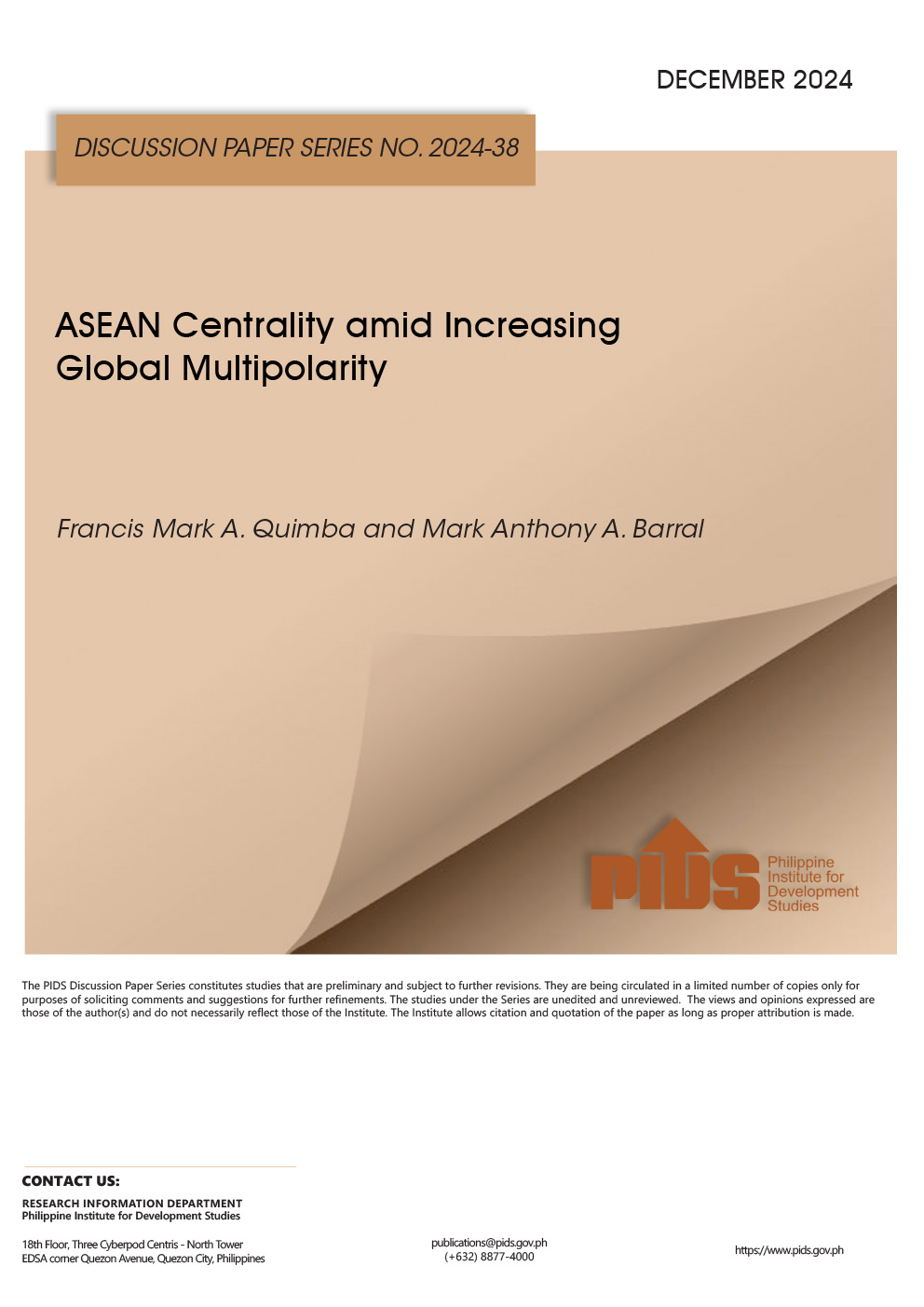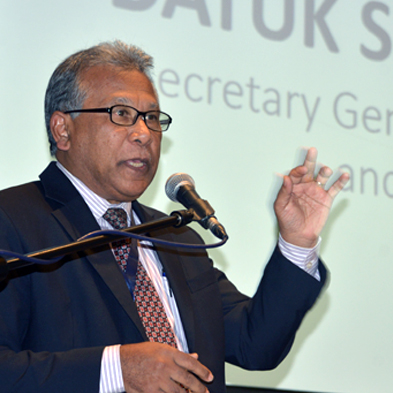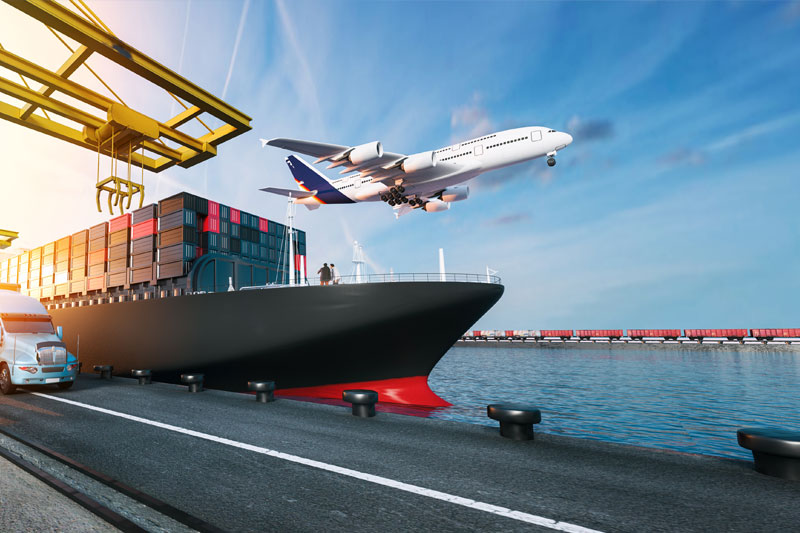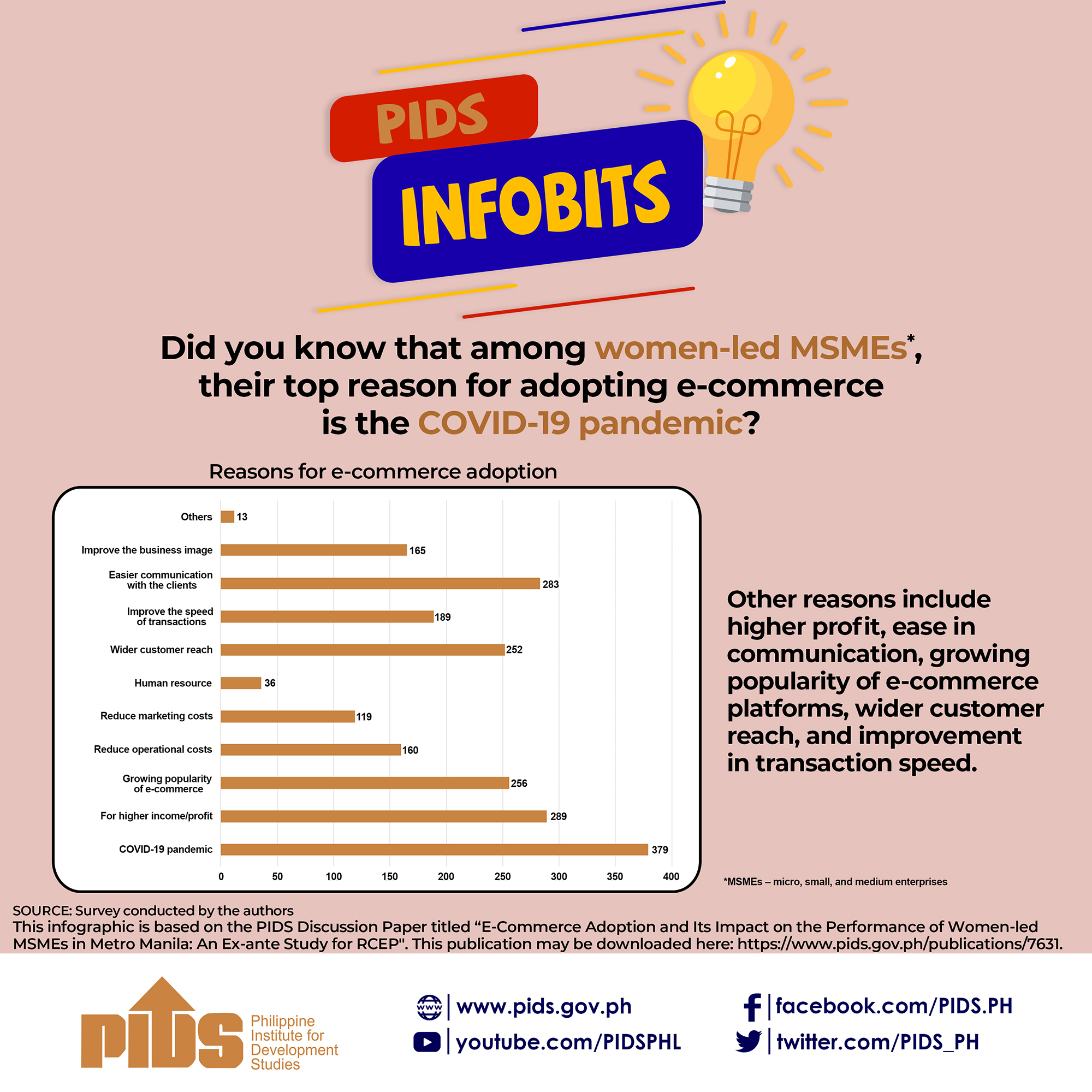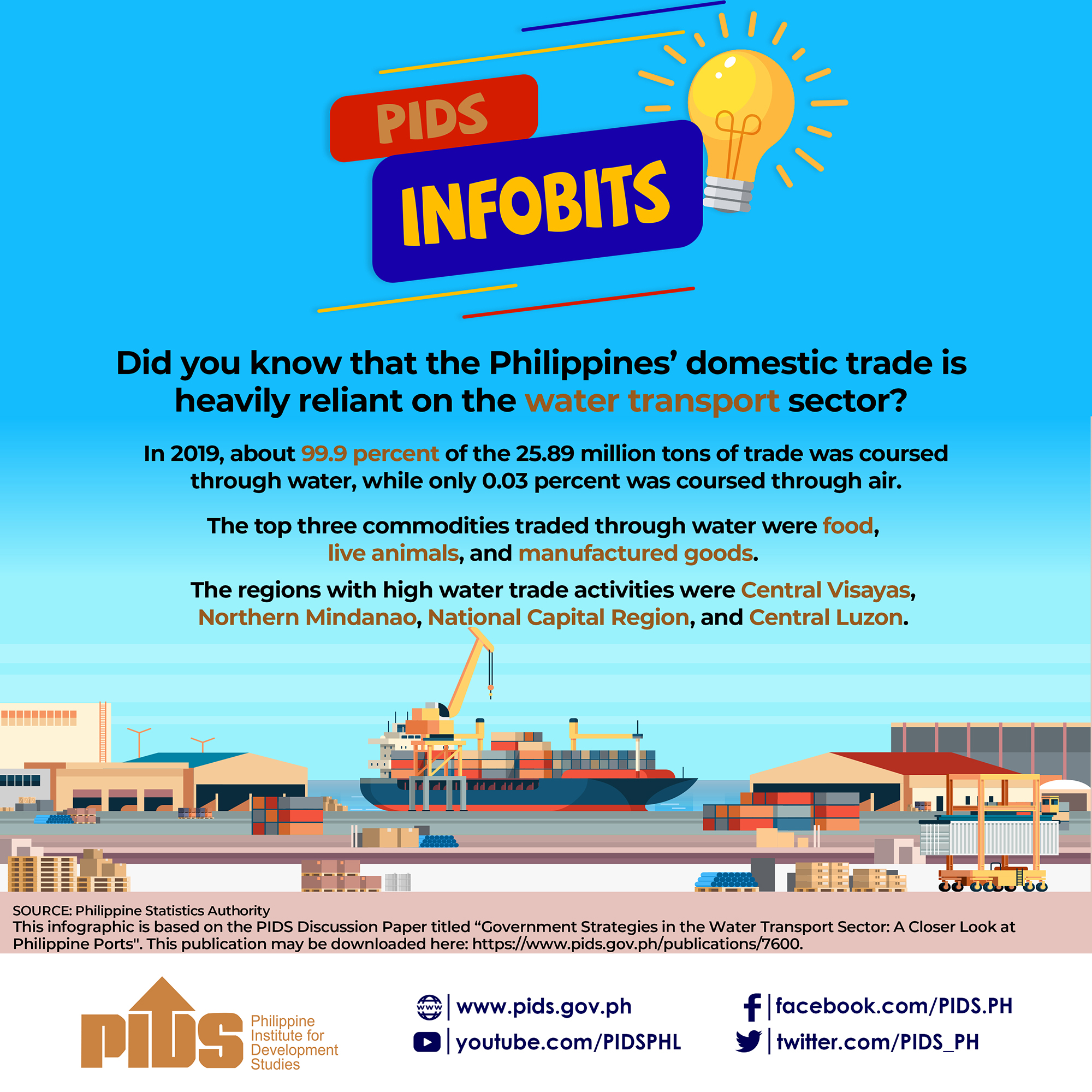The ASEAN Economic Integration (AEC) offers immense business opportunities that both the government and the private sector must exploit to fully benefit from its advantages.
This was underscored in a regional forum on the ASEAN Economic Community organized by the National Economic and Development Authority (NEDA) Regional Office 9 with the participation of state think tank Philippine Institute for Development Studies (PIDS) and the Department of Trade and Industry (DTI) regional office in Zamboanga City.
PIDS Senior Research Fellow Erlinda Medalla stressed the need to do more to take advantage of the opportunities from AEC.
The AEC does not only reduce tariffs but also promote trade facilitation. It commits the country to implement reforms on customs modernizations and establishment of a national single window and an ASEAN Single Window, she said.
"National single window is a single submission and accelerated processing of applications of licenses, permits, and other authorizations required prior to undertaking a trade transaction, while the ASEAN Single Window is a regional initiative that integrates the national single windows of ASEAN countries," Medalla said.
Medalla has been pushing for the implementation of a national single window to speed up data processing and cargo clearance procedures. "This would have positive impact on the cost of doing business, not just for large industries, but more importantly for micro, small, and medium enterprises."
She added that the country needs to step up in educating and informing the public about the benefits of the coming integration. "There is a need for greater information and education campaign to help small and medium enterprises get linked to the supply chain and receive support from all sectors. An agro-industry roadmap would also be a great help," she said.
DTI Assistant Secretary for Industry Development and Trade Policy Perry Rodolfo said that in 2010, duties for 98.63 percent of Philippine products are already at zero percent. “As of 2010, all duties have been eliminated for agricultural and industrial products except for live swine, live chicken, meat of swine, meat of chicken, cassava, sweet potatoes, maize, rice, and sugar,” he said.
Senen Perlada, Director of Export Marketing Bureau of DTI, said vast trading opportunities will come with the integration. "We should not limit our markets only to 100 million Filipinos considering that ASEAN has a combined GDP of USD 2.4 trillion as of 2013. About 67 million households in the ASEAN are now part of the consuming class," he said.
Perlada cited as an example a firm in General Santos City that shifted from exporting tuna to frozen smoked salmon. The firm imports zero-tariff salmon from New Zealand and then processes it for export to free trade agreement (FTA) partners.
Another example is Universal Robina's C2 Green Tea. C2 is now one of the largest in the Vietnamese bottled green tea market, Perlada said.
"We should also take advantage of the Halal market," he added. There is an advantage in food, logistics, and banking, he said.
"The Philippines has to engage in free trade agreements to maintain its competitiveness and promote cross-border complementation." Perlada emphasized that it is necessary to maximize the benefits made available by FTAs to our exporters.
Improving the quality of infrastructure in the Philippines was also a key topic in the forum. According to PIDS Senior Research Fellow Adoracion Navarro, the Philippines is the third lowest in overall quality of infrastructure in the ASEAN region based on the Global Competitiveness Report 2013-2014.
Critical investments in airport infrastructure facilities and air navigation system are needed to address congestion in airport terminals, Navarro said. "NAIA 1 served 7.5 million passengers in 2012, but its capacity is only 5.5 million passengers." She emphasized that it is necessary to boost infrastructure spending to five percent of GDP by 2016.
This was underscored in a regional forum on the ASEAN Economic Community organized by the National Economic and Development Authority (NEDA) Regional Office 9 with the participation of state think tank Philippine Institute for Development Studies (PIDS) and the Department of Trade and Industry (DTI) regional office in Zamboanga City.
PIDS Senior Research Fellow Erlinda Medalla stressed the need to do more to take advantage of the opportunities from AEC.
The AEC does not only reduce tariffs but also promote trade facilitation. It commits the country to implement reforms on customs modernizations and establishment of a national single window and an ASEAN Single Window, she said.
"National single window is a single submission and accelerated processing of applications of licenses, permits, and other authorizations required prior to undertaking a trade transaction, while the ASEAN Single Window is a regional initiative that integrates the national single windows of ASEAN countries," Medalla said.
Medalla has been pushing for the implementation of a national single window to speed up data processing and cargo clearance procedures. "This would have positive impact on the cost of doing business, not just for large industries, but more importantly for micro, small, and medium enterprises."
She added that the country needs to step up in educating and informing the public about the benefits of the coming integration. "There is a need for greater information and education campaign to help small and medium enterprises get linked to the supply chain and receive support from all sectors. An agro-industry roadmap would also be a great help," she said.
DTI Assistant Secretary for Industry Development and Trade Policy Perry Rodolfo said that in 2010, duties for 98.63 percent of Philippine products are already at zero percent. “As of 2010, all duties have been eliminated for agricultural and industrial products except for live swine, live chicken, meat of swine, meat of chicken, cassava, sweet potatoes, maize, rice, and sugar,” he said.
Senen Perlada, Director of Export Marketing Bureau of DTI, said vast trading opportunities will come with the integration. "We should not limit our markets only to 100 million Filipinos considering that ASEAN has a combined GDP of USD 2.4 trillion as of 2013. About 67 million households in the ASEAN are now part of the consuming class," he said.
Perlada cited as an example a firm in General Santos City that shifted from exporting tuna to frozen smoked salmon. The firm imports zero-tariff salmon from New Zealand and then processes it for export to free trade agreement (FTA) partners.
Another example is Universal Robina's C2 Green Tea. C2 is now one of the largest in the Vietnamese bottled green tea market, Perlada said.
"We should also take advantage of the Halal market," he added. There is an advantage in food, logistics, and banking, he said.
"The Philippines has to engage in free trade agreements to maintain its competitiveness and promote cross-border complementation." Perlada emphasized that it is necessary to maximize the benefits made available by FTAs to our exporters.
Improving the quality of infrastructure in the Philippines was also a key topic in the forum. According to PIDS Senior Research Fellow Adoracion Navarro, the Philippines is the third lowest in overall quality of infrastructure in the ASEAN region based on the Global Competitiveness Report 2013-2014.
Critical investments in airport infrastructure facilities and air navigation system are needed to address congestion in airport terminals, Navarro said. "NAIA 1 served 7.5 million passengers in 2012, but its capacity is only 5.5 million passengers." She emphasized that it is necessary to boost infrastructure spending to five percent of GDP by 2016.

